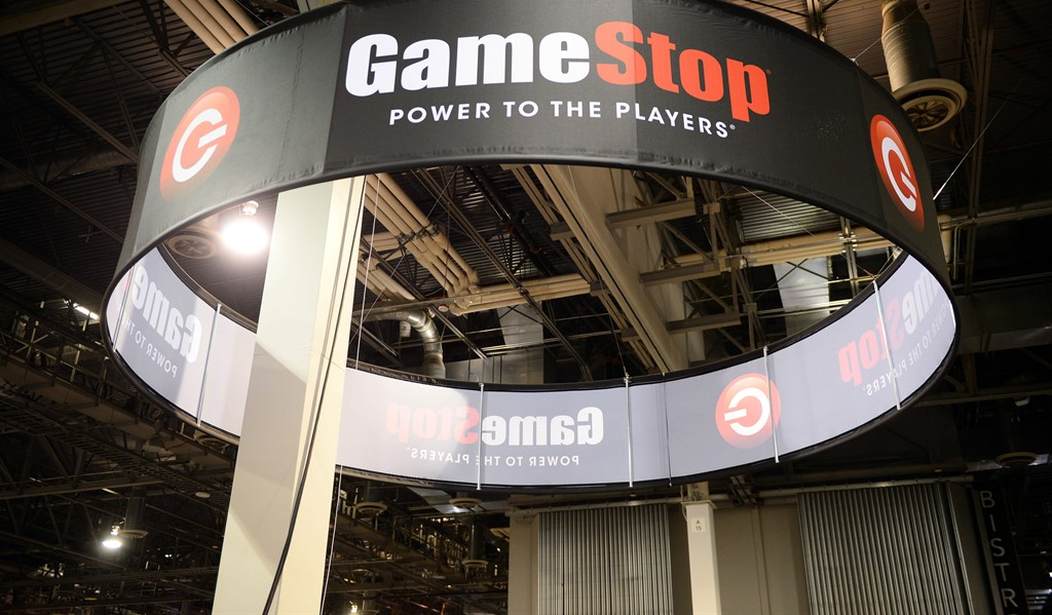As the WallStreetBets saga that has so captivated both Wall Street and social media has come to its roller-coaster conclusion, brokerage platforms such as Robinhood and TD Ameritrade now have the legacy of restricting trading of high-volatility stocks. But while brokers are attempting to address the problem on their own platforms, it’s possible that pro-regulation advocates could see the fracas as a mere opportunity to advance the burdensome regulatory agenda they've wanted to advance for years.
For the uninitiated, the current situation arose from a popular Reddit forum urging its users to target GameStop (GME), a stock heavily shorted by hedge funds, to create a so-called “short squeeze.” A short squeeze occurs when the price of a stock is rapidly bid up, thus causing major financial losses for anyone involved in a bet the stock would drop.
GME proved a smart target, as short positions were at nearly 140 percent of the value of the company prior to the squeeze. Consequently, the combination of retail investors buying GME and short sellers rushing to cover their positions drove GME up from around $17 a share at the beginning of the year to a one-time high of just under $470 a share.
The whole situation already rests on shaky regulatory ground. The Securities and Exchange Commission (SEC) is likely to investigate r/wallstreetbets for market manipulation, though it’s difficult to prove a coordinated scheme to boost a share’s value.
On the other hand, the SEC already introduced rules in the wake of the 2008 financial crisis to ban “naked shorts,” or a short that bypasses the step of actually borrowing a share of the stock, in an attempt to prevent situations like what just occurred with GME in which short positions exceed share volume. Generally speaking, the failure appears to be less that the market was unregulated and more that regulations in place to address these situations are simply difficult to enforce.
Recommended
But that will undoubtedly not stop regulation advocates from putting forward new proposals. One such proposal which was already gaining momentum prior to the GameStop fiasco is a financial transactions tax (FTT). Rep. Peter DeFazio has already introduced legislation to implement an FTT, and President Biden has signaled support. Advocates of FTTs have touted the potential of such a tax to restrict speculation and trade volume, and Rep. Ilhan Omar (D-MN) has already pushed for an FTT in response to the GameStop events.
An FTT could have the effect of dramatically restricting retail investing — exactly what left-wing Reps. Rashida Tlaib (D-MI) and Alexandria Ocasio-Cortez (D-NY) are up in arms about Robinhood and TD Ameritrade doing of their own volition. That arbitrary targeting of retail investors is one good reason to avoid an FTT.
But FTTs suffer from other problems as well. An FTT creates tax pyramiding, or the taxation of the same income multiple times, violating a basic tenet of sound tax policy. More broadly speaking, an FTT would effectively make it more expensive for businesses to raise investment capital — exactly the last thing we should be doing when trying to revive the economy.
Attempts to restrict access to trading could also take other forms, such as requiring licenses to trade or limiting the amount of shares one individual can trade per day. These too would be the wrong response to recent events — the stock market should be a tool for all Americans to invest and plan for the future, not a gated community.
“The Squad” may be up in arms about Robinhood’s decision to restrict trading of GME, but it’s not hard to predict the outrage they would have shown if they’d left trading alone, only to see thousands of retail investors wiped out when the GameStop bubble eventually pops.
Advocates of crackdowns on Wall Street may see the GameStop saga as their golden ticket, but legislators and regulators should be careful not to overreact. Regulation is not a silver bullet, and it could end up creating new, far worse problems.























Join the conversation as a VIP Member